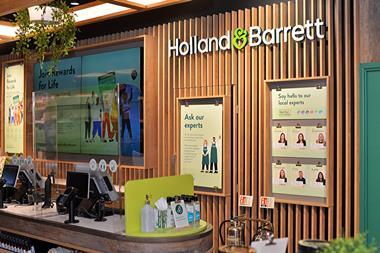With ESG rising up retailers’ agendas, Browne Jacobson partner Suki Tonks looks at how businesses can make actionable strategies to firmly embed ESG in workplace culture
Environmental, social and governance (ESG) strategies are a board-level issue.
Whether the focus is on net-zero emissions (an example of the E) or health and wellbeing (the S) or inclusion and equality (the G), ESG has fast become a critical risk framework.
Consisting of non-financial standards, this framework is used by businesses to evaluate performance and understand what impact they are having on the planet and society as a whole.
Retail practices under scrutiny
Retailers have been under the microscope for many years.
Consumers are increasingly holding retailers to account for their environmental impact and set the expectation to act ethically throughout supply chains.
The invasion of Ukraine by Russia is a recent example of consumers demanding action by retailers that operated stores in Russia and highlights the speed at which consumers turned to social media when certain businesses did not act fast enough.
The retail sector has also been heavily impacted by Covid-19 with essential businesses having to balance the physical and mental safety of their employees against meeting customer expectations and regaining confidence – the wellbeing of staff being paramount to their retention and driving footfall to keep the economy going.
Sharing best practice
Developing ESG strategies need not be done in isolation. There are vast opportunities for businesses to collaborate with each other.
This applies to all sectors – for example, local authorities working with the retail sector to deliver regeneration projects where green space is central to the scheme; the lockdown restrictions very quickly brought to the forefront the need for open space in built environments.
Partnerships across public and private sectors
New opportunities for our high streets could be created if investors and retailers formed partnerships with local community groups.
This could improve the wellbeing and employment opportunities of people from lower socioeconomic backgrounds and repurpose high streets that have been overlooked for many years.
With hybrid working here to stay, consumers are more likely to spend time and money locally if they are able to walk to schemes as opposed to driving.
Not only would this reduce their carbon footprint, it would also save on parking charges, which are a significant consideration with the cost of living rising.
Tracking progress and building in accountability
Governance is a crucial part of ESG. Consumers, employees and investors will look at how a business measures its performance against defined targets.
Concrete targets that are set to hold themselves accountable and corresponding consequences for failing to meet the ESG framework can result in measurable change.
Future-proof your business
Notwithstanding the stage your business may be at with regards to its ESG agenda, clear objectives need to be agreed and mapped out.
Unless ESG is firmly embedded within your culture, there is a real danger that your consumers, employees and investors will view ESG as being a “tick box” exercise, having serious implications for the sustainable future of your business.
Suki Tonks is a partner at Browne Jacobson LLP
Contact Suki for more information about how we can help define your approach to ESG.

























